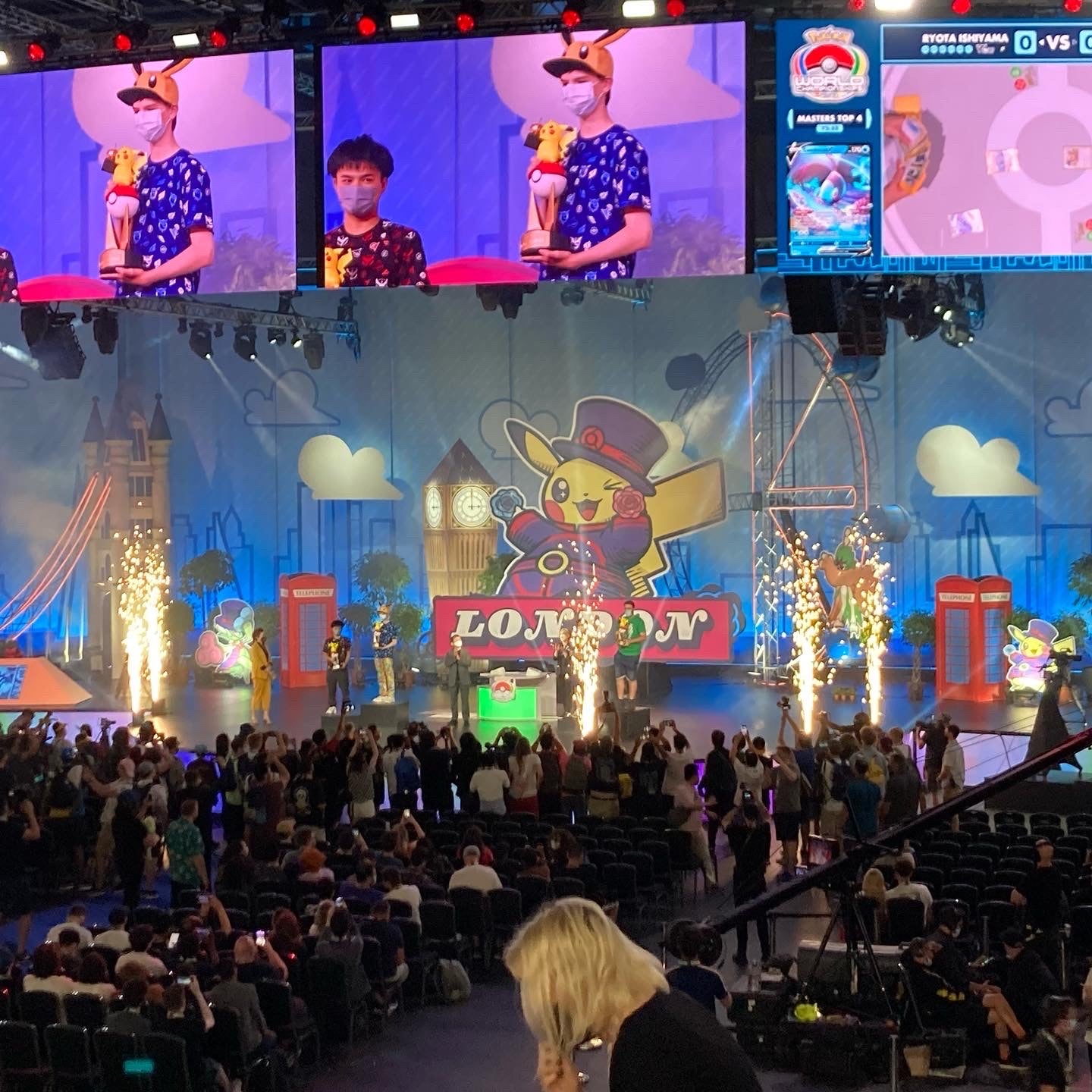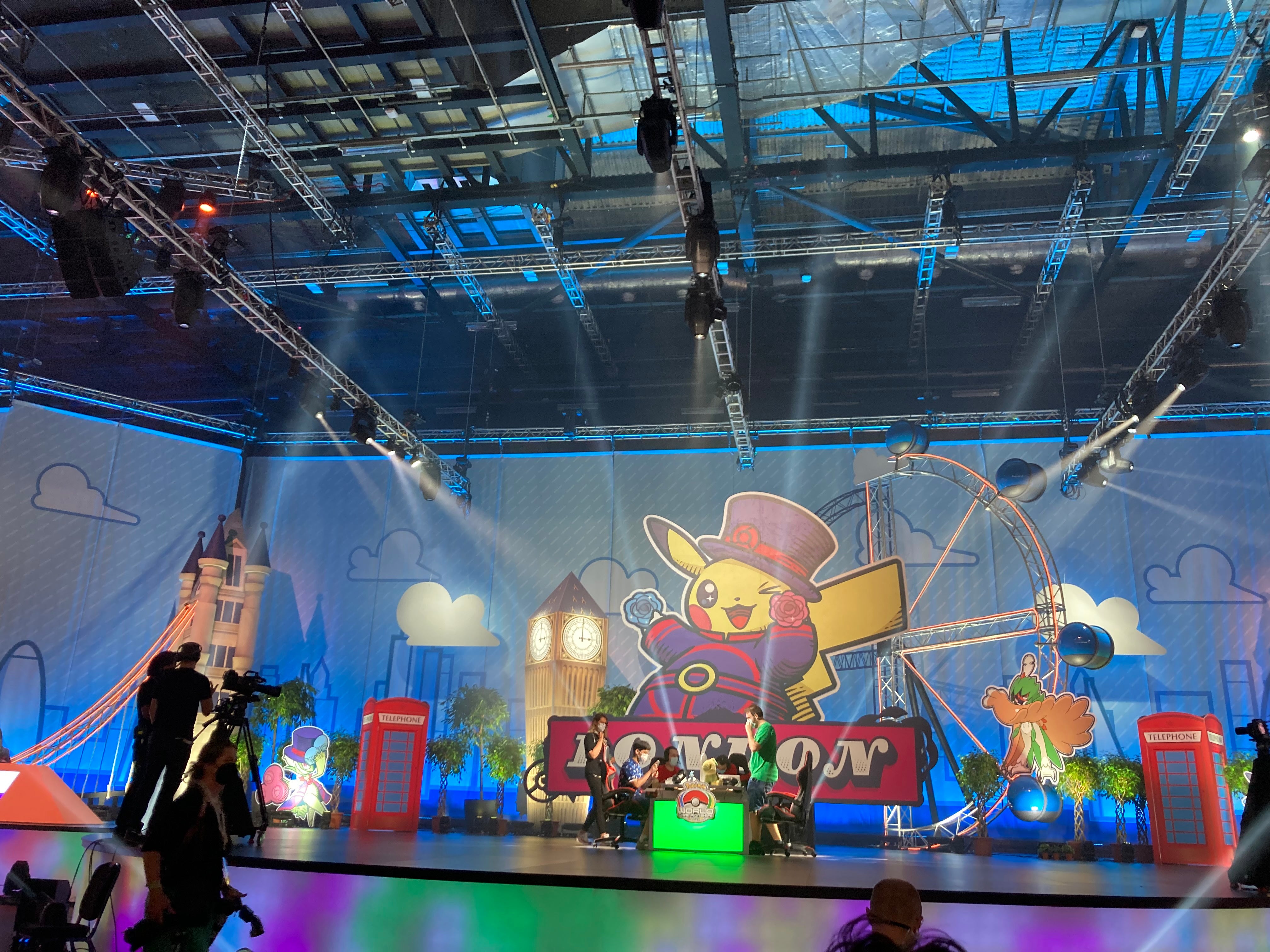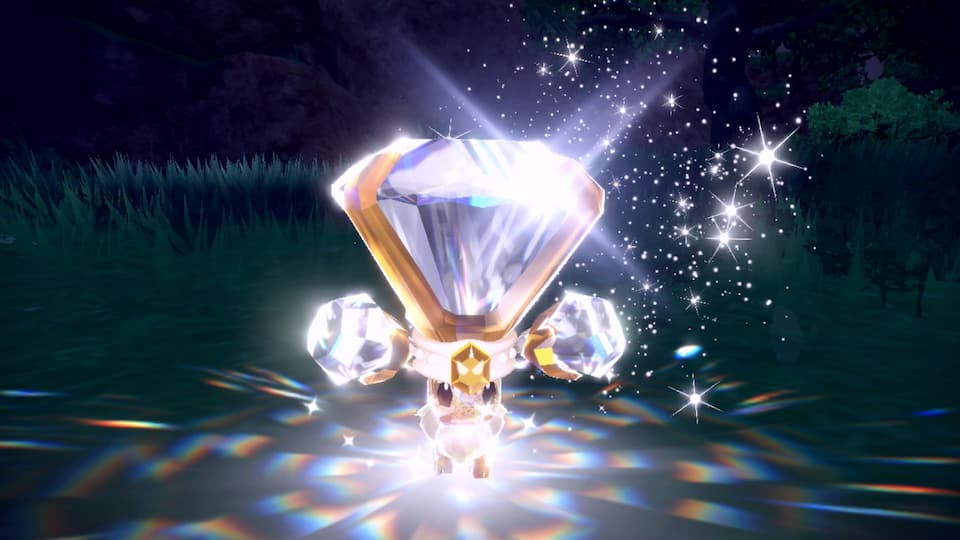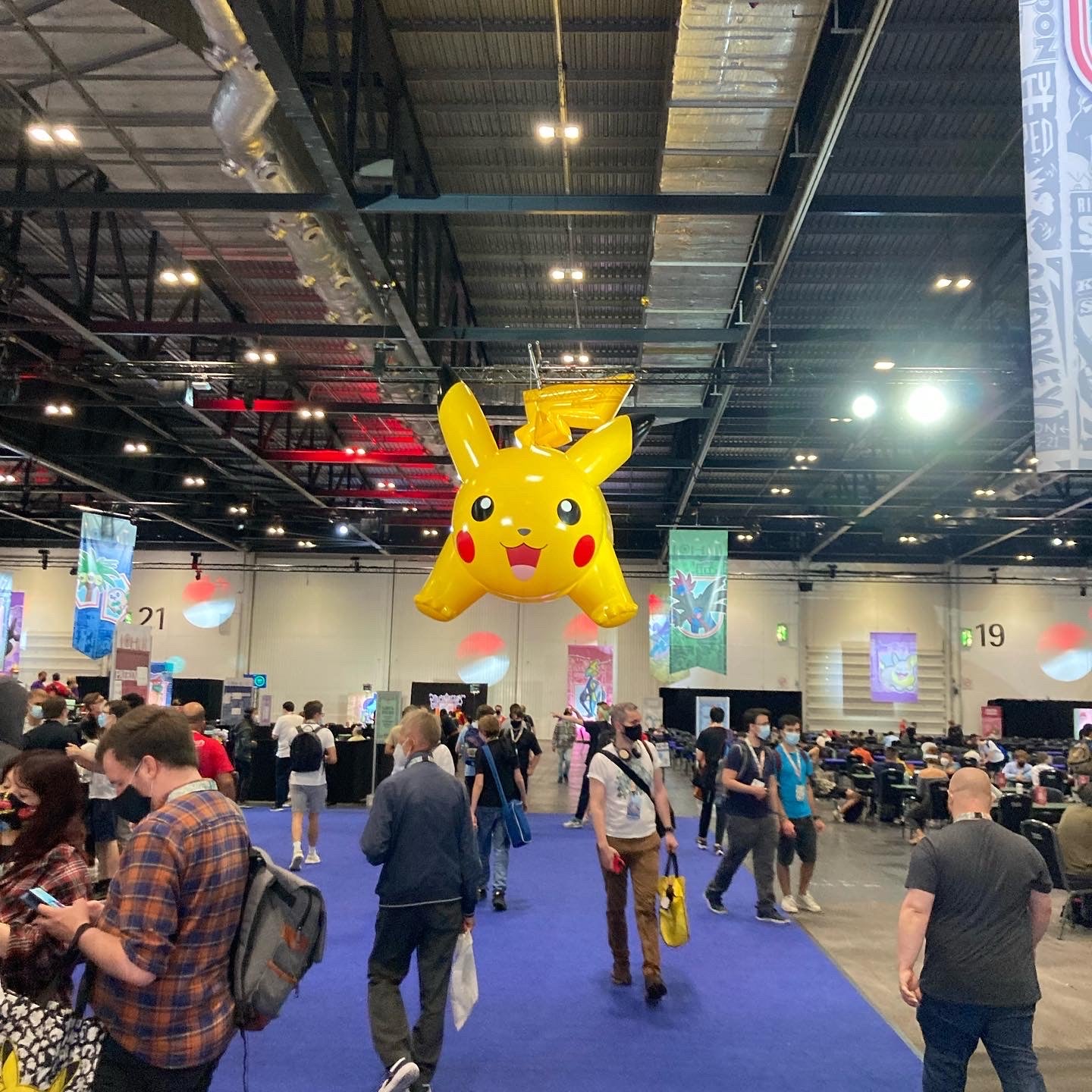As we’re all aware, that script was flipped in a way nobody anticipated. The Pokémon World Championships, originally scheduled to take place in London in 2020, were delayed two years in a row due to COVID-19, along with the respective tournament circuits. The Pokémon Company offered an admirable online replacement in the Pokémon Players Cup events, while corners of the Video Game Championship (VGC) community staged their own tournaments to fill the void. The changing VGC rulesets and the release of two expansions, Isle of Armor and The Crown Tundra, maintained enthusiasm for Sword and Shield during lockdown. Online tournaments too meant a wider net of players could compete without travel expenses – like other esports during the pandemic. For a game pitched on stadium-sized battles and ballooning Pokémon through Dynamax, however, the big stage and in-person crowds felt like a key ingredient more so than any preceding Pokémon title in fulfilling its potential as a spectator event. Flash forward to August 2022 at London’s ExCeL, and the first Pokémon World Championships to take place outside the US has become an unintended, if apt, swansong to the UK-inspired Sword and Shield. The main stage, sandwiched by two red double decker buses, is decorated with landmarks from Tower Bridge to the London Eye. Pikachu, meanwhile, stands front and center in a Beefeater outfit: a dangling kick in the chest for the 75% who missed out on the exclusive plushie from the Pokémon Center due to obscene demand. “It feels like it’s been a long time coming,” VGC caster Rosemary Kelley told VG247. “When it was first announced that we would be going to London for the world championships in Washington D.C. [in 2019], everyone was so excited. I remember the room exploding with awe and wonder about what a world championship in London would look like. So to be here, it feels like everything is finally coming full circle. “While it is a little weird that it is the first championship for Sword and Shield and it will be the last, it feels right. We needed a Worlds with a bang to return to.” If this year’s return feels bigger, it’s because it is. Along with the staple VGC and trading card game tournaments, Pokémon Unite and Pokémon GO – following the launch of Battle League in 2020 – made their debut as official events. Pokken Tournament DX, the underrated fighter which has been included since 2015, also made its final bow in London. Coupled with activities outside of competitive play (like a screening for the latest anime, a market section for trading and selling cards, and Pokémon GO scavenger hunts), the event feels like a flex of the breadth to which the franchise has consumed multiple generations over 25 years. If anything has defined Sword and Shield, however, it’s that bigger doesn’t always mean better. For James Baek, a US VGC player who finished third in this year’s standings, Sword and Shield’s final run closes a chapter on a meta which, looking back, sparks mixed feelings. “Right now, I’m not the biggest fan of competitive Sword and Shield,” he said. “I think Dynamax is a big mechanic mainly just because it adds so much variance. There’s so many different viable plays you can do with Dynamax that it’s really hard to cap all of them. “I think when you add too much variance like that, it can kind of snowball – especially when you have strong moves like Max Airstream and these stat-boosting moves that are powerful hits as well. I think it’s just a little bit too hectic. It’s still really cool to see high-level Dynamax play, but it can just really snowball out of hand. It only takes one turn to really mess up, and that’s especially true with Dynamax.” While the mechanic might have its critics among competitors, it’s undeniably a crowd-pleasing spectacle. In the VGC final, a European showdown between Portugal’s Eduardo Cunha and Spain’s Guillermo Castilla Diaz, the explosive takedown of a Gigantamax Charizard prompts roars and cheers from the crowd as the match dramatically swings in Cunha’s favour. Compared to predecessor Pokémon Ultra Sun and Ultra Moon, released on the Nintendo 3DS, it’s a huge visual step-up that actually feels at home splashed across big screens to a yelling audience. Sword and Shield’s leaving party, however, might have been upstaged by a trailer in the closing ceremony. A glimpse of the VGC’s future is shown in a competitive-skewed trailer for Pokémon Scarlet and Violet, which might have been underwhelming to a casual audience – but showed off mechanics and items which could become foundational to high-level strategies moving forward. These new items include Mirror Herb, which allows players to copy an opponent’s stat increases and boost your own, and Loaded Dice, which increases the likelihood of multi-strike moves (like Bullet Seed) hitting a higher number of times. The most significant new item, however, might be Covert Cloak, which protects players from additional effects of moves, like flinching, freezes, and paralysis. While it won’t affect status-only moves like Thunder Wave, it might become a crutch to counter a lot of Pokémon’s randomly afflicted status conditions. The biggest question mark for the future, however, is the impact of Scarlet and Violet’s main gimmick: Terastallizing. When activated, a Pokémon changes to its Tera Type, which can be any of the 18 different types available. Essentially, terastallizing can flip a Pokémon’s weaknesses and strengths at the hit of a button – which could throw up both creative opportunities and nasty surprises for competitors when it comes to assessing an opponent’s team. “I think it’s hard to make a judgment, but with the way it is, apparently you can turn into all 18 types, which is pretty insane, realistically,” Baek said. “There’s lots of different combinations you can do. It’s really going to depend on how it works. I’m pretty excited to see how it goes.” “Whenever you get a new mechanic, people seem to look at the most obvious things first,” Kelley added. “Even when it was Mega [Evolutions] or Dynamax, a lot of the meta at first was focused around looking at how you can carve out an offensive advantage. Then as the formats progress, I think it ends up going more towards: how can we really push the envelope to making this particular mechanic work? “What I loved about Dynamax and how that evolved is that we started to see more defensive uses of Dynamax. I think one of those that really sticks out is when Aaron Traylor dynamaxed a Whimsicott to reset terrain and that’s all it did, he removed it from the field after that. So for terastallization, I’m hoping it will be a very similar process where players may start looking at offensive uses of the mechanic first, and then really start to look at: how can I change my typing to make a specific weakness? Or really push the power of something that I think will be able to secure a knockout? That’s really where I see it going.” A new generation of Pokémon games also means an exciting reset for the player base at large. With a trip to Yokohama, Japan waiting at the end of victory road for next year’s championships, the race to become the best at Pokémon Scarlet and Violet looks more appealing than ever. “When we pivot over to a new game it means really interesting strategies and going back to square one, which always feels super exciting,” Kelley said. “Everything is at your fingertips, everyone is discovering things at the same time, and you’re also starting out probably in a format that’s easier to get into. So I’m really hoping that’s going to help allow players to get involved and feel like they can approach the space. We’ll see where it goes from there.”




